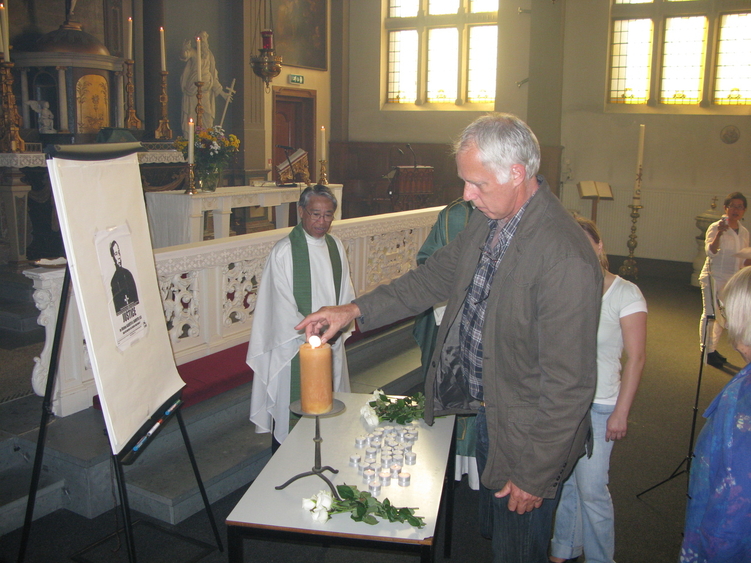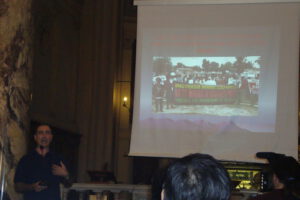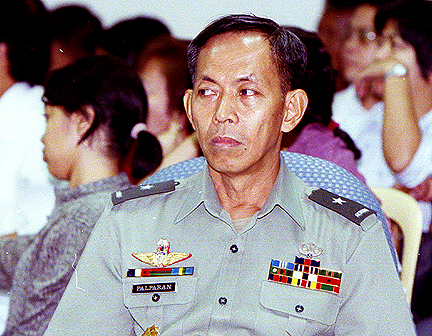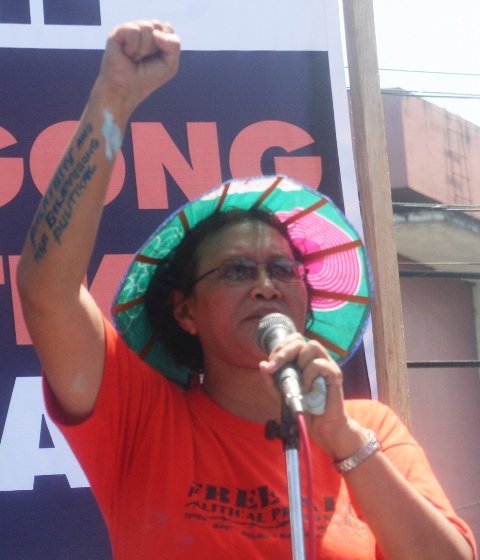A solemn memorial mass “ Remembering and Honoring Bishop Alberto B. Ramento and All Other Church Martyrs in the Movement for Justice, Peace and Integrity of Creation in the Philippines”, was held October 2 , at the Old Catholic Church in Amsterdam.
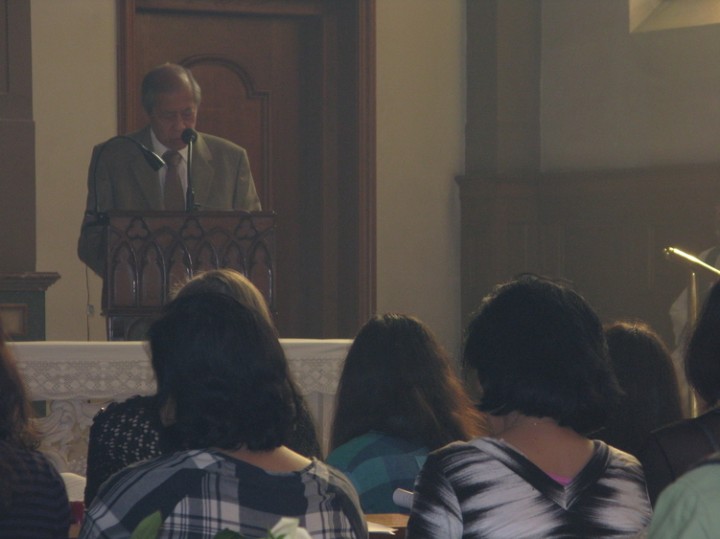
The mass marked the 5th anniversary of the extrajudicial killing (EJK) of IFI (Iglesia Filipina Independiente-Philippine Independent Church) Bishop Ramento on October 3, 2006 at his rectory in Tarlac. The mass was organized by the Filipino Parish Netherlands (FPNL) and the Old Catholic Church (OCC).
The Philippine National Police dismissed his killing as “robbery with homicide” while his family, IFI and human rights organizations considered his killing as politically motivated. Having received several death threats and sensing that his life was in danger, he wrote his family “I know they are going to kill me next. But never will I abandon my duty to God and my ministry for the people”.
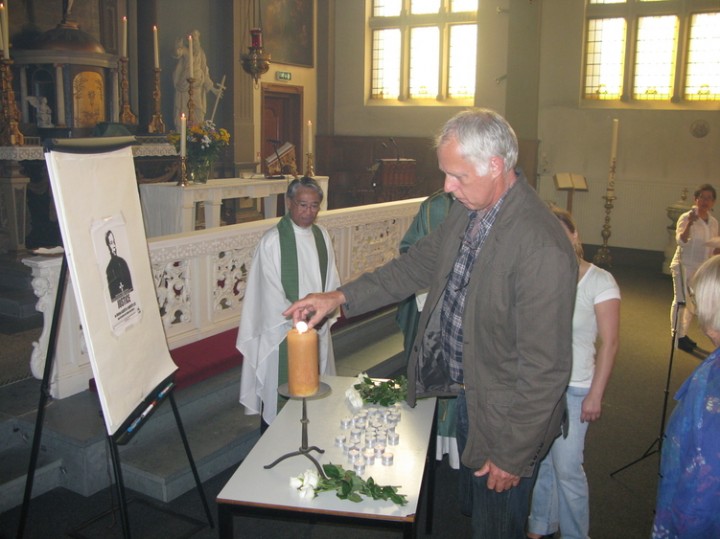
Bishop Ramento was a high ranking official of his church and inter-church organizations like the Ecumenical Bishops’ Forum, National Council of Churches in the Philippines, Convenor of Pilgrims for Peace and Board Chairperson of the Workers Assistance Centre in Cavite. He was a staunch critic of the Arroyo administration for its anti-poor, anti-peasant and anti-worker policies and its grave human rights record.
Solidarity messages were delivered by Theo Droog of the Nederlands-Filipijns Solidaritetit, Netherlands-Philippine Solidarity (NFS), Dr. Paul The Gwan Tjaij, chairperson of the SKIN (association of migrant churches in the Netherlands) and Luis Jaladoni, chairperson of the Negotiating Panel of the NDFP (National Democratic Front of the Philippines).
In their messages, they underscored Bishop Ramento as being a bishop of the poor, the peasants and the workers. They extolled his uncompromising opposition to extrajudicial killings and his consistent advocacy for peace based on justice. They noted his solidarity with the Hacienda Luisita farm workers strike and his courage to carry on his advocacy for justice and human rights in spite of threats and the killing of one of his priests, the Rev. Fr. William Tadena who was in solidarity with the farm workers’ strike.
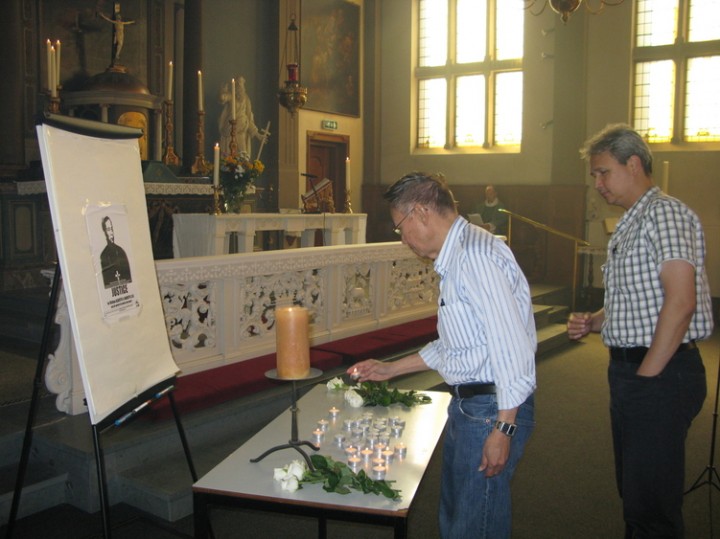
Luis Jalandoni said ”Bishop Ramento is indeed a martyr and hero of the Filipino people”, while Theo Droog noted that the” sacrifices of the martyrs will never be forgotten and is a continuing source of inspiration”. Dr. Paul expressed thanks for the lives of the martyrs and said “it is our deepest hope and prayer that the extra-judicial killings will stop and be resolved according to the principles of law and democracy”.
A part of the memorial mass was the presentation of a book on Catholicity and Globalization-Remembering Ramento- a Bishop of the Poor, Peasants and Workers, by Rev. Fr. Dr. Peter-Ben Smit. The book is a project of the Old Catholic Church to honor Bishop Ramento as a martyr.
A roll call of the 30 martyrs since 2001 was made. Thirty (30) candles were lighted and flowers laid to honor the martyrs, afterwhich the song Pananagutan was sung.
Attending the memorial mass were Prof. Jose Maria Sison and other members of the NDFP Negotiating Panel, migrants, refugees, au pairs, solidarity friends and members of the Old Catholic Church.
In his homily, Rev. C.T. Taguba said that the memorial mass is significant because it shows that the Filipino diaspora and their friends are concerned and in solidarity with the victims and their loved ones and that the victims are not silenced nor terrorized. He said that 2 church people were victims of EJKs since Aquino III became president. Noting that justice is still to be done, he expressed fears that the worst is still to come. However, he said “there is hope in the courage of the exploited and oppressed to resist and uphold their human dignity and the growth in strength of solidarity for human rights, justice and peace on the national and international levels”. He linked the struggle of migrants and their families for dignity as an integral part of the movement for human rights, justice and peace.
Meanwhile, the Filipino Parish Council announced that the next monthly mass will be held at 2pm of 20 November . The 18 December mass will celebrate Christmas and the anniversary of the UN Convention on the Protection of All Migrant Workers and Members of Their Families. Parish programs for the undocumented, Christian nurture and growth and solidarity relations were also announced.
(For further information please contact Rev. C. T. Taguba , tel. 033-4723084, <emfaministry@hotmail.com>, Rev. Fr. Dr. Peter-Ben Smit <p.b.a.smit@vu.nl> and Bishop Dr. DJ Schoon,020-6628313, email<djschoon@planet.nl)




